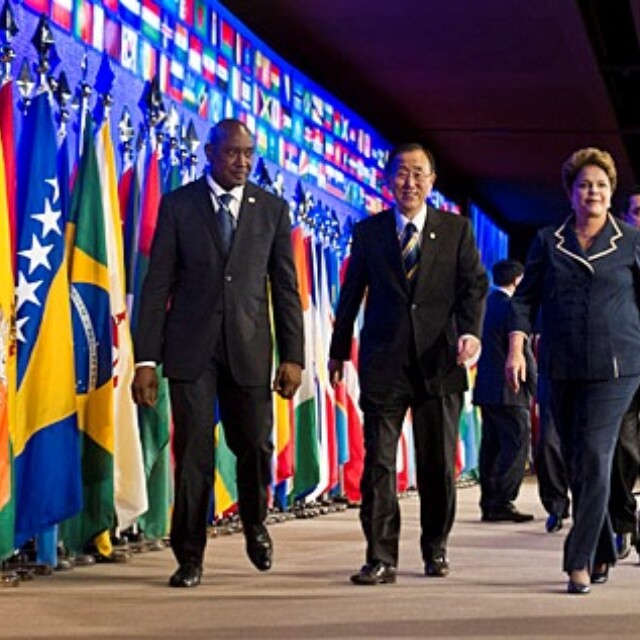Redesigning the Rules: Power, Purpose and the Future of Our Economy
Prepared remarks for “From Despair to Action: Building Progressive Futures” hosted by Sussex School for Progressive Futures.
You are using an outdated browser. Please upgrade your browser to improve your experience and security.

As the world emerges from COVID-19, we face multiple global crises and deeply divided societies. We believe that a new eco-social contract is needed to rebuild trust, tackle poverty and inequality, and prevent climate breakdown
The 20th century social contract—an implicit bargain between economic imperatives of growth and productivity, and social imperatives of redistribution and social protection—has broken down and cannot sustain the transformative vision of the 2030 Agenda.
For the 21st century, our network believes, the contract is in need of a fundamental overhaul. First, it must ensure human rights for all—importantly, this means bringing in those not fully benefitting from previous social contracts, such as women, informal workers and migrants. Second, it must ensure larger freedom for all in a fast-changing world, including security and protection as new challenges emerge. Third, it must spur the transformation of economies and societies to halt climate change and environmental destruction.
The purpose of the Global Research and Action Network for a New Eco-Social Contract is to explore the promise of a new eco-social contract as a way of responding to pressing social and ecological challenges. The network is a space for dialogue, debate, co-construction and action around the meaning of a new eco-social contract; good practices for its design; and mechanisms for its application.
First, to broaden understanding around the idea of a new eco-social contract. Second, to define its terms, which would enable a just transition to climate-resilient, green and fair economies. And third, to identify the actions, institutions and processes available to stakeholders at multiple levels to define eco-social contracts that integrate climate and environmental justice, racial justice, respect for human rights, decent work, gender equality, intergenerational justice, the rights of the natural world, and biological and cultural diversity.
The Global Research and Action Network for a New Eco-Social Contract convenes a community that bridges disciplines and sectors, thus catalysing an intersectional approach between the social, climate and ecological justice movements. Led by a secretariat hosted jointly by GEC and UNRISD, members participate in, and have access to, a range of activities to pursue the network’s mission—such as an online platform for engagement, webinars, surveys, joint research, publications and their dissemination, discussion forums, knowledge exchange, capacity building and networking opportunities. The network welcomes both organizations and individual members.
The Global Research and Action Network for a New Eco-Social Contract is for organizations and individuals in the research, practice, advocacy and policy decision-making communities, in social movements, civil society and the public and private sectors, interested in co-constructing a new eco-social contract that is inclusive, climate-proof, and adapted to the complex challenges of the 21st century. Membership in the Global Research and Action Network for a New Eco-Social Contract is free and open to organizations and individuals that adhere to the membership commitments.